- Home
- international
- news
- The Taliban requires that all mannequins' heads be covered or cut off. Interviews with locals and eerie photos of storefronts offer a glimpse of Afghanistan's new reality.
The Taliban requires that all mannequins' heads be covered or cut off. Interviews with locals and eerie photos of storefronts offer a glimpse of Afghanistan's new reality.
Marielle Descalsota

- Veiled and headless mannequins are a ubiquitous sight in fashion shops across Afghanistan.
- A shop owner says the Taliban's restriction has affected the psyche of female shoppers.
Since the Taliban's takeover of Afghanistan in August 2021, women have been forced to cover up. Now, the faces on mannequins of all genders must be hidden, too.
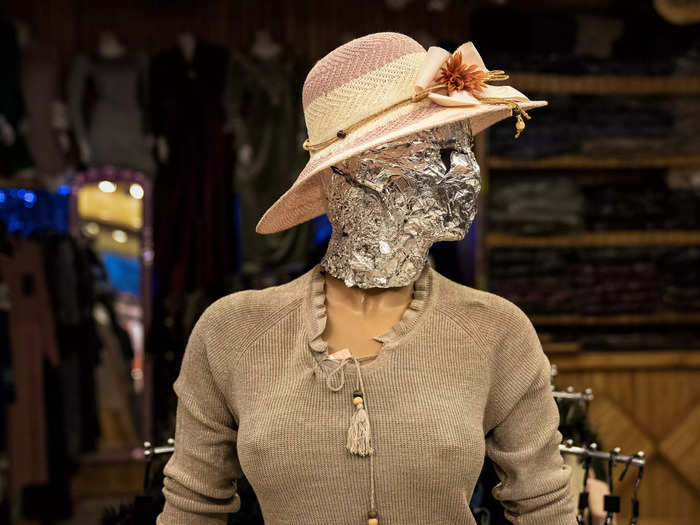
For the past two years, the Taliban has gradually erased women from public spaces. Being a woman in Afghanistan means being invisible. Women are not allowed to work, go to school, and are forced to wear the veil in public.
The Taliban's move to restrict women's rights in Afghanistan began with vandalizing storefronts displaying images of women. Today, the Taliban have ramped up these efforts by trying to ban a seemingly inconspicuous object: mannequins.
Insider spoke to several locals from Kabul, including a shop owner, a female athlete, and an Afghan-born scholar, to find out why the Taliban wants to destroy mannequins and how this affects the lives of both men and women in Afghanistan.
In Kabul, the capital of Afghanistan, mannequins were once a symbol of fashion and culture. But in the past year, shop owners have resorted to displaying them headless or covered in cloth, just to keep their stores open.

In August 2021, the Taliban announced that shop owners must remove the heads of their mannequins, or do away with them all together.
But several shop owners pleaded with the Taliban to let them keep their mannequins intact. The Taliban agreed, but on one condition — all mannequins must have faces covered.
One such shop owner is Faisal Azizi. Before coming to the US to study political science and government at Dartmouth College in March, he operated a family business selling traditional Afghan clothing.
Azizi told Insider that the Taliban forced locals to deface banners displaying photos of fashion models before trying to totally ban the use of mannequins.
The Taliban believe statues and images of the human form are forbidden, according to their strict interpretation of Islamic law.
But experts like Bahar Jalali, an Afghan-born professor of the history of modern Middle East at Loyola University Maryland, believes the move to deface mannequins is part of an extremist ideology to attack personal freedoms and to rid life in Afghanistan of any semblance of normalcy.
"Even under the most conservative Afghan regimes of the past, mannequins were part and parcel of the urban landscape," Jalali, who fled Afghanistan after the Soviet invasion in 1979, told Insider, adding that the Taliban sees the figures of women as offensive and shameful.
Shop owners now use various materials to cover the faces of mannequins: lace, cloaks, and even black plastic bags.
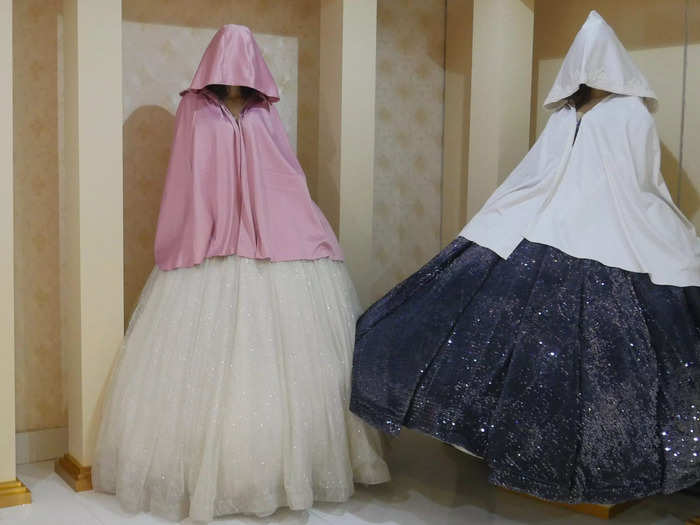
While some shop owners in Afghanistan have resorted to using aluminum foil or paint to obscure the faces of mannequins, Azizi still feels it's important for the mannequins to look stylish. Azizi, with the help of his brothers in Afghanistan, continues to run the shop from the US.
Mannequins are a valuable commodity to shop owners because of how expensive they are. Azizi estimates that each one costs between $200 and $300.
"We try to match it to the color of the dress, to make it look like a mask," Azizi said. "We can't just put a plastic bag — it looks like you've abducted someone."
No matter how hard the shop owners try to make it look fashionable, Azizi feels the requirement has affected shoppers' psyche.
"Sales are completely down at the moment," he said, adding that sales for his shop have dropped between 50% and 70% since the restrictions began.
"When people go to the store and see the covers they don't want to buy," he added.
For many Afghan women, shopping in itself is a difficult experience under the Taliban. Like the mannequins, they too are subjected to many rules.
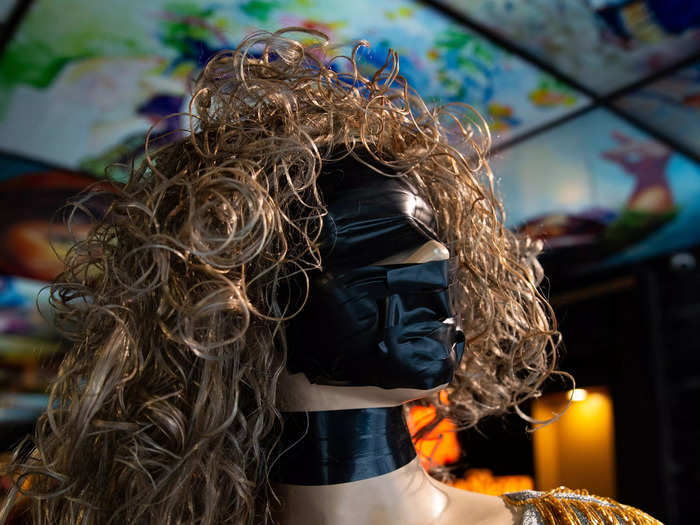
In Afghanistan, women must be accompanied by a male chaperone whenever they leave their house, Jalali said, and going shopping is no exception.
Marwa Ali, a 21-year-old soccer player raised in Kabul, said many women like her experience a harrowing journey from their homes to the apparel shops. Ali declined to share where she currently lives for security reasons.
"I went shopping with my brother in our personal car, and the Taliban forced me to leave the front seat of the car and sit in the back," Ali told Insider, adding that she likely would have been treated worse had she refused to wear a mask or cover her face.
Ali said she misses shopping in her relaxed clothing and that browsing fashion shops doesn't make her feel "alive" like it did before.
"We don't want to cover the faces of women or mannequins," she said.
In an effort to keep female employees protected, Azizi often has them act as shoppers during spot checks by the Taliban.
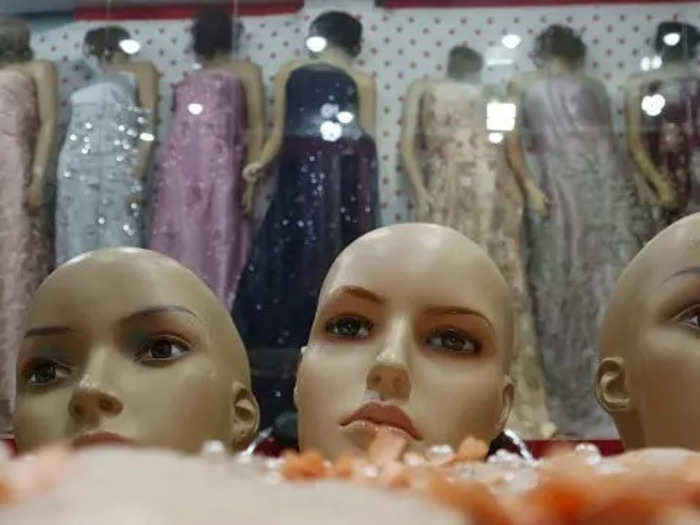
Operating a shop with female employees in Afghanistan is risky, Azizi said. Those caught are often subjected to violence.
"You can't argue with them. They come with guns," Azizi said, adding that the Taliban can "just abduct you or put you in jail without due process."
Working women are harassed, he said. Azizi likened the Taliban's treatment of women to living in "a cage" where "they can't go out."
Several of Azizi's female employees are widows. He explained that many of their husbands died while serving in the now-defunct Afghan National Army.
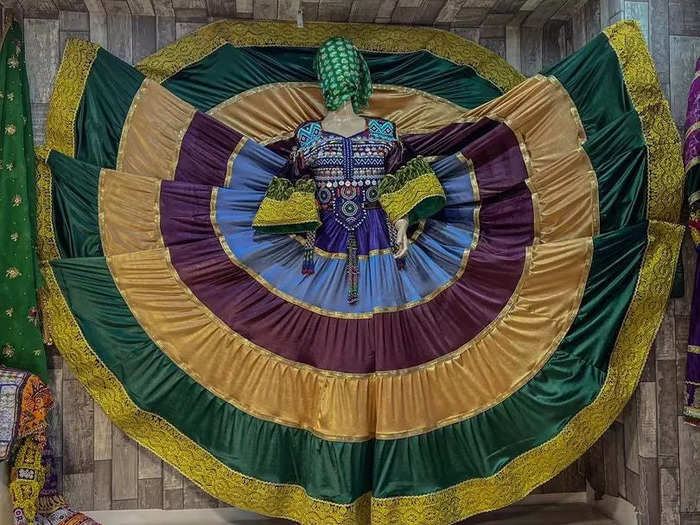
In a patriarchal society like Afghanistan, living as a woman without a husband makes life even harder.
Living under Taliban rule is a balancing act, Azizi said: Shop owners need "to be nice with them" in order for their businesses to survive, but they also need to employ female workers in order to help families in need.
"My business is feeding 40 to 50 families," he said. "Women are not allowed to work. There's no protocol. But I try to take care of my employees."
For Marwa Ali, whose father died 12 years ago, the hardship is something she witnesses everyday.
"There are so many women, like my mother, who don't have a husband to work for them. They need a job. How else would they have income or food for their family?" Ali said.
The future of the mannequins — and women — under the Taliban continues to look bleak.
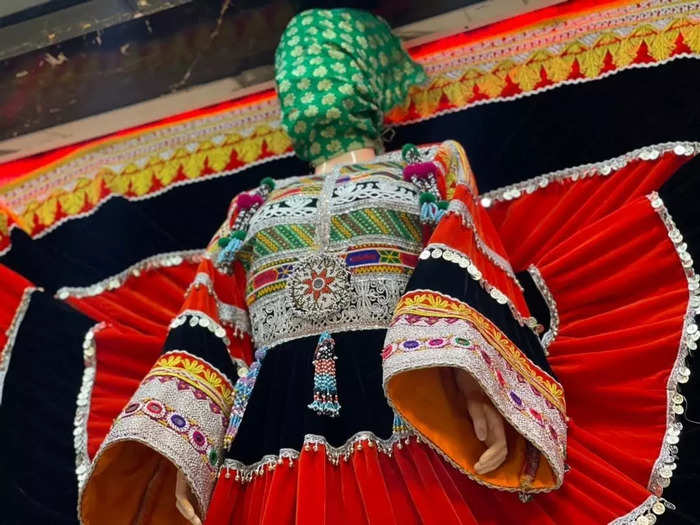
Mannequins might just be the tip of the iceberg, Azizi said, adding that he expects the Taliban to impose more restrictions over time.
"For the local economy, the Taliban need to be nice to the locals. But once they are stable — in three or four years — they'll ban everything," he said.
For the Taliban, the plan is to continuously erase women from the public sphere, Jalali said. She sees the mannequins as just one more example of the broader attack on women and their presence in the public sphere.
"Being a woman in Afghanistan will be the equivalent of being under house arrest with no opportunity for education, employment, freedom of movement, and basically no sense of normalcy," she added.
Popular Right Now
Popular Keywords
Advertisement